THE WITNESS
Oxfam Report 2011: When Indigenous communities named Rwanda nationals by investor to run away from corporate accountability
Published
7 years agoon
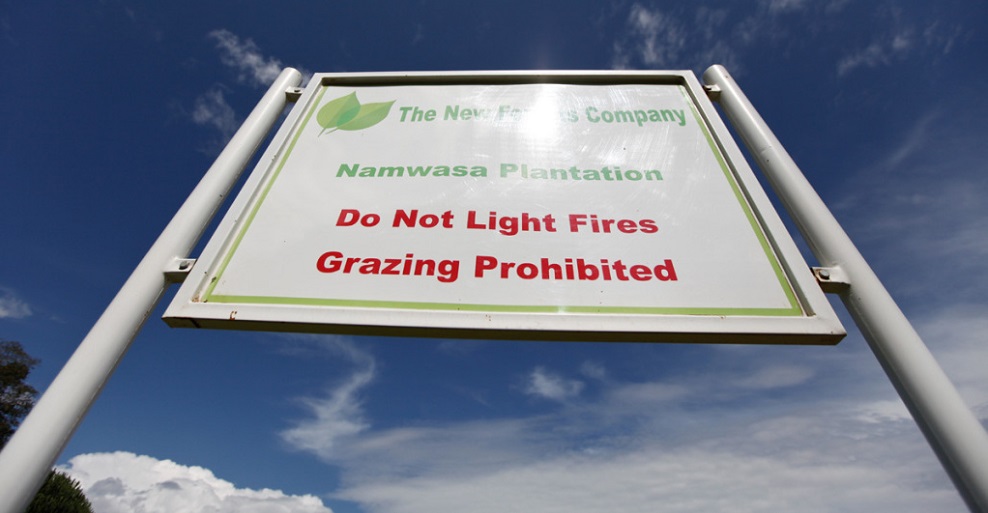
By witnessradio.org Team as extracted from Author’s report…
A very different story was told by the New Forest company sent to audit NFC for the FSC certification of its Namwasa plantation in Mubende.
The auditors noted the ongoing land dispute when they visited the area in February 2010: ‘in excess of 540 households (mostly from Rwanda) have recently illegally settled on Namwasa FMU. They have erected a large number of structures and started cultivating agricultural fields.’ According to the auditors, the government had made repeated attempts to persuade the people to leave. To facilitate this process, they said, the company offered to pay compensation, but the government declined this as it would set ‘an unacceptable national precedent.’
When the auditors returned later that year to check on progress, they were reassured that, ‘Encroachers were allowed to harvest their annual crops and remove their structures and other portable properties. By 1 March 2010, the company surveyed the land and found that all illegal settlers on the plantation had voluntarily vacated the reserve… There were no incidences of injury to the encroachers or forceful eviction reported during this process.’
The FSC certifies forestry investments that adhere to best operating practices regarding labour, social, and environmental issues. While the FSC’s Principles and Criteria require the protection of local rights of ownership, use, or access, the certification of operations sometimes falls short of this requirement. Oxfam believes this is the case for the FSC certification of NFC’s plantation in Mubende, as the nature of the evictions appears to constitute a disregard for these rights. For instance, FSC Principle 2 on tenure and use rights and responsibilities requires that ‘appropriate mechanisms shall be employed to resolve disputes over tenure claims and use rights’ and that ‘disputes of substantial magnitude involving a significant number of interests will normally disqualify an operation from being certified.’ Principle 4, on community relations and worker’s rights, requires appropriate mechanisms ‘for providing fair compensation in the case of loss or damage affecting the legal or customary rights, property, resources, or livelihoods of local peoples.’ NFC cited, in a letter to Oxfam, a surveillance audit report conducted by the FSC in June 2010, which concluded that ‘the company has followed peaceful means and acted responsibly to resolve the issue of encroachment and currently there are no tenure and/or use right disputes of substantial magnitude to affect the activities of the company.’ However, in light of the pending court cases, involving significant numbers of claimants, as well as the communities’ reports that no compensation was provided for losses of property and livelihoods, Oxfam does not see how FSC Principles 2 and 4 can have been adhered to.
The IFC has Performance Standards relating to the rights of local people facing ‘involuntary resettlement’ similar to those of the FSC. The IFC reviewed NFC’s Namwasa operation as part of the due diligence for its $7m equity investment in Agri-Vie, a private equity agribusiness fund whose portfolio includes NFC. On the one hand, the IFC concluded that NFC had been unable to comprehensively apply the principles guiding resettlement in IFC’s Performance Standard on land acquisition and involuntary resettlement. This standard recognises that project-related land acquisition and restrictions on land use can have an adverse impact on communities using the land and therefore requires that affected communities are provided with compensation, resettlement, and livelihood restoration.69 Yet, because this was a case of government- led settlement and because NFC had demonstrated, in IFC’s view, ‘all possible efforts to engage and collaborate with the Government agency,’ the IFC was satisfied that NFC demonstrated compliance with the standard ‘to the extent allowed by the Government.’ The IFC assessment does not cover NFC’s Kiboga operations.
The EIB also has Environmental and Social Principles and Standards for the projects that it finances. The EIB funded the expansion of NFC’s Namwasa operation through a €5m loan, together with a €650,000 subsidy grant to finance the company’s Corporate Social Responsibility (CSR) work. Like the IFC, the EIB also supports NFC indirectly via a $12m investment in Agri-Vie. The EIB says it was aware of land disputes between communities and the NFC and the risk this posed to the project. It says that, irrespective of the outcome of the ongoing legal procedures, it is satisfied by the project’s Environmental Impact Assessment, and that it believes NFC to have acted within its rights. The EIB says it considers the project to be fully in line with its Environmental and Social Principles and Standards. These include a standard on involuntary resettlement that requires that ‘people whose livelihoods are negatively affected by a project should have their livelihoods improved or at minimum restored and/or adequately compensated for any losses incurred.’ Again the EIB does not appear to have assessed the social impacts of NFC’s Kiboga operations.
HSBC bank has invested around $10m in NFC, has 20 per cent ownership in the company, and also has a seat on the NFC board. It made its investment in NFC conditional upon the company making adequate progress towards certification from the FSC.72 HSBC also has a number of sustainability policies for ‘sensitive sectors’, including a Forest Land and Forest Products Sector Policy, and says that NFC meets the Bank’s sustainability requirements for this the sector. However, HSBC’s policies (and those of other investors) rely heavily on assurances provided by the independent confirmation of external bodies, like FSC, and in Oxfam’s view this case highlights serious failures in those processes of independent assessment
The NFC denies any role in evicting local communities in Mubende and Kiboga, claiming that the government would be responsible for any evictions. The company says, ‘Evictions from government land – which go on in Uganda every day – are solely in the hands of the government and its designated authorities such as the Uganda Wildlife Authority, the National Forestry Authority, and the Ministry of Lands. We are expressly prohibited from dialogue and interaction from any illegal encroachers.’
Equally, the company says, ‘as licensees we are expressly prohibited from offering anyone on government land any compensation.’
The Ugandan government, at local and national levels, appears to have played a central role in the evictions in Mubende and Kiboga. International rights standards are clear that governments are the primary duty bearers for the respect, protection, and promotion of the rights of their citizens.
Until the mid-2000s, authorities had seemed to tolerate or even endorse local communities’ rights to the land in some instances. For example, in Mubende, descendants of war veterans were offered land with approval of the local government authority, and people’s applications to convert from customary to freehold or leasehold title, or to register public land for agricultural purchases, were being processed by authorities. In Kiboga, local councils and administrative structures representing the evictees were recognised by the government. The Minister of General Duties, wrote in 2004 of 20,000 people in Luwunga Forest, ‘these people have stayed in this place since the early 1970s.’ This attitude began to shift, however, particularly with the creation of the National Forestry Authority (NFA) in 2003, according to Ugandan NGO ACODE, which studied the role of the NFA towards ‘encroachers’.
To be continued…
…
Related posts:
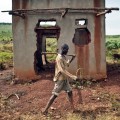
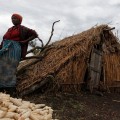 Oxfam report 2011: Court orders were too weak to stop an investor in Mubende and Kiboga
Oxfam report 2011: Court orders were too weak to stop an investor in Mubende and Kiboga
 Oxfam Report 2011: Money from the west; financed displacement of over 20000 families both in Mubende and Kiboga districts
Oxfam Report 2011: Money from the west; financed displacement of over 20000 families both in Mubende and Kiboga districts
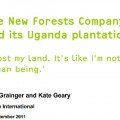 The New Forests Company and its Uganda plantations
The New Forests Company and its Uganda plantations
 Oxfam Report Says Thousands Evicted in Uganda Land Grab
Oxfam Report Says Thousands Evicted in Uganda Land Grab

You may like
-
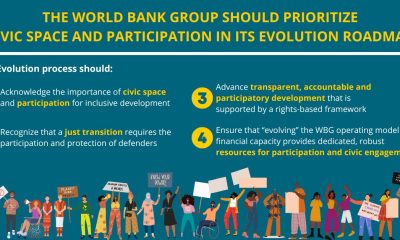

World Bank Group’s Evolution Process must prioritize Civic Space and Participation
-
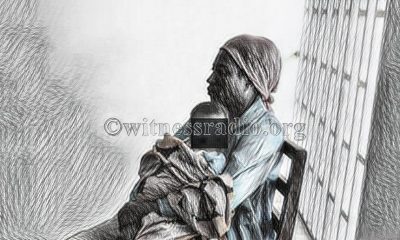

……Special Report abridged testimony…… How a pregnant woman was beaten by multinationals and local police over her land…
-
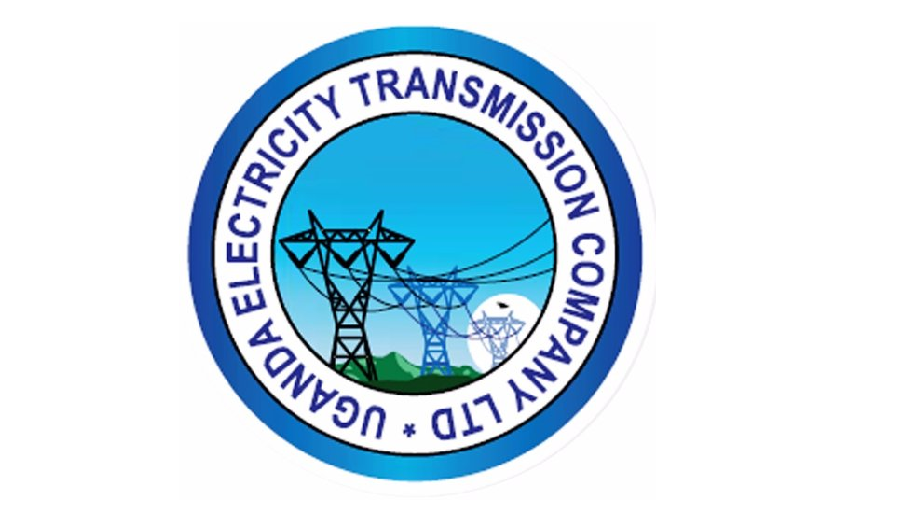

Electricity Transmission Company holds titles in Masaka as residents point to foul play
-


The New Forest Company is engaged in fresh tactics to intimidate affected community it evicted 10 years ago…
-
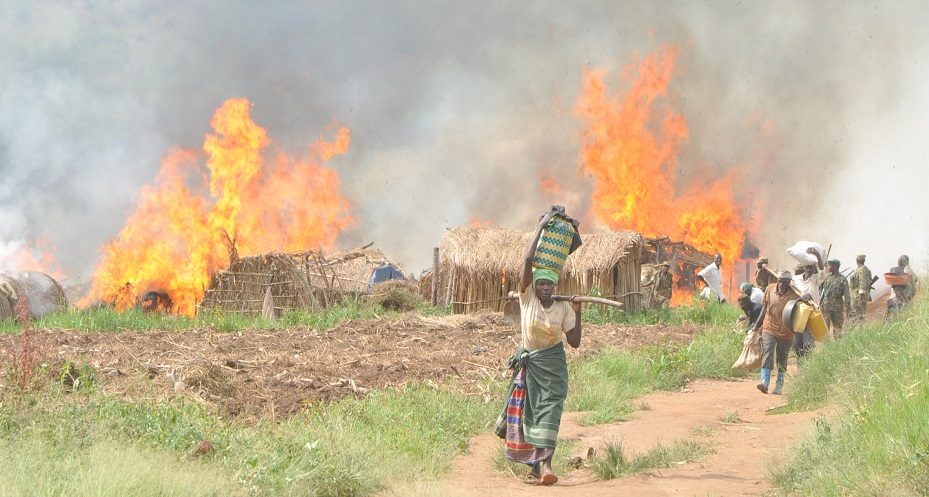

Land grabs victims in Uganda meet amid escalating cases of illegal evictions and rights violations
-
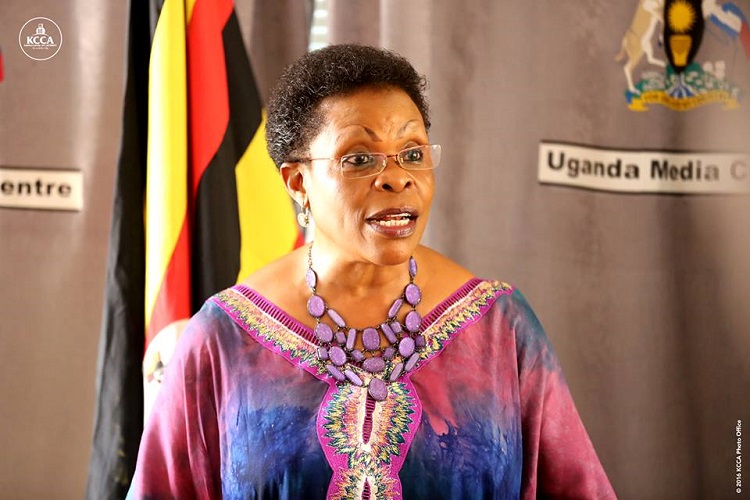

Government issues notice on land evictions amid COVID-19 lockdown
THE WITNESS
Enemies of the State: Resistance to the EACOP becomes a deadly task
Published
1 year agoon
July 3, 2024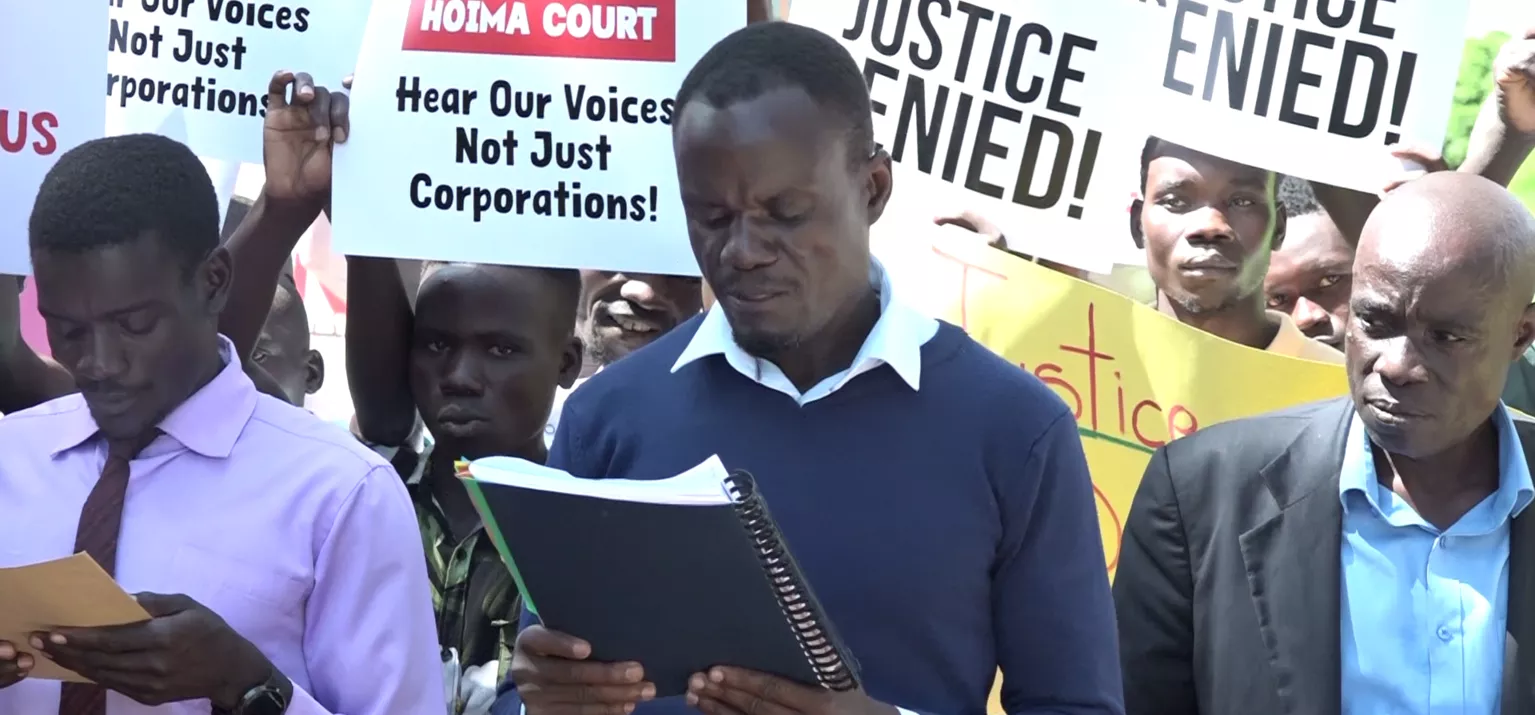
It is no secret: in Uganda it is badly about human rights. With the construction of the East African Crude Oil Pipeline, repression against lawyers, but activists and journalists is taking on new proportions. They are staged as enemies of the state. The human rights organisation Witness Radio reports from Uganda.
The morning of the 15th April 2024 in the court of the Ugandan city of Hoima did not go as usual: court officials, police officers and passers-by watched helplessly as a crowd led by the activist Fred Mwesigwa read a petition in the Hoima High Court: “We are deeply concerned about the recent court ruling that orders the expulsion of 42 families in the Buliisa district to make room for the Tilga project.” They protested against a court order of December 2023, which gave the government the green light to the community to expel the community for the oil production project. The community had previously refused to accept the government-intended compensation payments for their country, on which they live and from which they live.
The Buliisa case is just the tip of the iceberg of the many communities affected by oil production projects. In Uganda and Tanzania, the rural population in particular has to give way to a 30-metre-wide pipeline corridor, oil production fields, tank farms, infrastructure and safety zones around the East African Crude Oil Pipeline (EACOP). According to a study published in 2022 by the organisation Les Amis de la Terre, up to 118,000 people could be affected by resettlement along the pipeline route, including mainly farming communities.
Low discompensation
In a conversation with Witness Radio, those affected reported that they were no longer in a position to meet their basic needs due to insufficient compensation and inadequate resettlement plans. James 1, who was taken to the Kyakaboga resettlement camp, declared that the inhabitants had been provided with infertile land that was unsuitable for the cultivation of crops. In addition, the camps are overcrowded, which means that the residents are exposed to illness. He stressed that access to health services is particularly challenging. Pregnant women in particular are facing difficulties, as the nearest health centre is eight kilometres away. Tragically, James said, three pregnant womans would have lost their babies on their way to there.
“Their houses were set on fire, their ownness was plundered.”For the East African Crude Oil Pipeline, climate, nature and people need to give way
Uganda’s oil dilemmaControversies about the black gold
Black Gold from East AfricaConstruction of the EACOP crude oil pipeline is imminent
As in the case of the 42 households from Buliisa, who refused compensation from the government, many of the EACOP projects say those affected that the government did not adequately assess their land and property. Nevertheless, they were forced to release their land for the project. They criticised the fact that they were not sufficiently sensitised to the negative effects of the project. Instead, the government and the majority shareholders Totalenergies promised large compensation, prosperity growth and employment opportunities that have not yet occurred.
A study by Inclusive Development International also concludes that, in accordance with international standards, the government and TotalEnergies have systematically failed to involve the people affected by the project and civil society in the planning and providing them with low-threshold information. The study also states that when testing the environmental impact of Tilenga, Kingfisher and EACOP, it was found that the project promoters do not use the “best available techniques” to prevent the impact on the impact of ecosystems. The decision to use low-cost technologies for oil drilling and water-leading areas is therefore a predictable risk to the health and safety of local residents.
Opposition underesired
When the first land survey for the Tilenga project took place in 2020, many families expected to benefit from the project. Later, however, TotalEnergies aimed to acquire their country free of charge. In consultation with some real estate agents, local authorities, police and army, the company distributed almost 20,000 people in Kapapi (Hoima) in February 2023. In the course of this, women were also raped. Before the forced expulsion, the local police, in cooperation with the real estate brokers, had arrested those who criticised the land grab in order to intimidate the other members of the community.
Activists are presented as ‘anti-development’
The seven defenders of the plaintive families, Karongo Edward, Mulega Eria, Kataza Samuel, Rangira Stephen, Rubyogo Edward and Mbombo Stephen, were charged with a host of alleged crimes. In June 2023, after three to five months in prison, they were released on bail. However, as part of their bail pads, they must report regularly to the court in Hoima.
The criminalisation of land and environmentalists has become a common tactic by the Ugandan authorities in order to silence opposition and maintain impunity. This tactic does not only exist in Uganda, it is a global problem – especially in the context of large infrastructure projects.
According to the data from Witness Radio, in seven out of ten cases of evictions, defenders are subjected to targeted violence, torture and arbitrary arrests. They are often falsely charged with a large number of crimes ranging from domestic peace and attempted murder. At the end of June 2023, Witness Radio reported that more and more environmental and land-legal defenders who uncover questionable business are targeting state controls. From 2010 to 2023, more than 1,500 people. In connection with the pipeline, Witness Radio has documented 75 cases of arbitrary arrests, detentions and forced disappearances since the first construction work.
Opposition to the EACOP has become a mortal danger. Activists and human rights activists are confronted with hate speech, arrests, torture and death threats and are portrayed as ‘honsensible to development’ – on the grounds that they would promote the interests of Western countries.
The Resistance goes on
Ugandan activist Bob Barigye reports that the state security forces are using “false accusations” to arrest activists. “We are considered enemies of the state,” says Barigye. “The police are now preferting psychological torture because physical torture would create poor publicity for the oil pipeline project, which could deter investors and insurers. The government does not want to be in the international spotlight for the wrong reasons.”
Not only the project opponents, but also journalists in Uganda find it difficult to report on the EACOP projects: Gerald Tenywa is a Ugandan science journalist who has been reporting intensively on environmental protests for decades. In an interview with Drilled Media, he describes the difficulties in reporting on EACOP activists who criticise the construction of the pipeline. He cites the government’s intolerance to protests as a hurdle for journalistic work and stresses that in developing countries “oil and politics have almost always merged”.
“Oil and politics are almost always fused”
Emmanuel Okello works for the Uganda Radio Network in the Ugandan Albertine region. According to him, reporting is also made more difficult by the fact that the government and the companies involved keep the most important information about the oil projects under wraps. “A lot is claimed to promote these projects, including the development of the communities,” says Okello, “but this is not the case on the ground. People do not benefit from the projects, they only destroy their livelihoods. If you ask the government who exactly the beneficiaries they are talking about, there is no clear answer.”
It remains a difficult task to bring the voices of the affected communities into the public and to cope with the associated repression. It is also connected with obstacles to achieving justice through legal route. Thus, the court in Hoima rejected the application for the cessation of the evictions of the 42 families in Buliisa mentioned above.
The presentation of the plight of these communities, the protection of the environment and support for court cases are crucial, especially at a time when the space for civil society and media freedom in Uganda is becoming ever smaller. This requires cooperation with international groups and support for civil societies and media.
Source: www.iz3w.org
Related posts:

 The East African Court of Justice fixes the ruling date for a petition challenging the EACOP project.
The East African Court of Justice fixes the ruling date for a petition challenging the EACOP project.
 Put people above profits – Climate Activists urge Total to defund EACOP
Put people above profits – Climate Activists urge Total to defund EACOP
 Breaking: Criminal trial for seven community defenders opposed to EACOP/Tilenga project forced land eviction has been fixed.
Breaking: Criminal trial for seven community defenders opposed to EACOP/Tilenga project forced land eviction has been fixed.
 A reference filed by CSOs against the planned construction of the East African Crude Oil Pipeline (EACOP) is set for hearing.
A reference filed by CSOs against the planned construction of the East African Crude Oil Pipeline (EACOP) is set for hearing.
DEFENDING LAND AND ENVIRONMENTAL RIGHTS
Statement: The Energy Sector Strategy 2024–2028 Must Mark the End of the EBRD’s Support to Fossil Fuels
Published
2 years agoon
September 27, 2023
The European Bank for Reconstruction and Development (EBRD) is due to publish a new Energy Sector Strategy before the end of 2023. A total of 130 civil society organizations from over 40 countries have released a statement calling on the EBRD to end finance for all fossil fuels, including gas.
From 2018 to 2021, the EBRD invested EUR 2.9 billion in the fossil energy sector, with the majority of this support going to gas. This makes it the third biggest funder of fossil fuels among all multilateral development banks, behind the World Bank Group and the Islamic Development Bank.
The EBRD has already excluded coal and upstream oil and gas fields from its financing. The draft Energy Sector Strategy further excludes oil transportation and oil-fired electricity generation. However, the draft strategy would continue to allow some investment in new fossil gas pipelines and other transportation infrastructure, as well as gas power generation and heating.
In the statement, the civil society organizations point out that any new support to gas risks locking in outdated energy infrastructure in places that need investments in clean energy the most. At the same time, they highlight, ending support to fossil gas is necessary, not only for climate security, but also for ensuring energy security, since continued investment in gas exposes countries of operation to high and volatile energy prices that can have a severe impact on their ability to reach development targets. Moreover, they underscore that supporting new gas transportation infrastructure is not a solution to the current energy crisis, given that new infrastructure would not come online for several years, well after the crisis has passed.
The signatories of the statement call on the EBRD to amend the Energy Sector Strategy to
- fully exclude new investments in midstream and downstream gas projects;
- avoid loopholes involving the use of unproven or uneconomic technologies, as well as aspirational but meaningless mitigation measures such as “CCS-readiness”; and
- strengthen the requirements for financial intermediaries where the intended nature of the sub-transactions is not known to exclude fossil fuel finance across the entire value chain.
Source: iisd.org
Download the statement: https://www.iisd.org/system/files/2023-09/ngo-statement-on-energy-sector-strategy-2024-2028.pdf
Related posts:

 Breaking: over 350,000 acres of land were grabbed during Witness Radio – Uganda’s seven months ban.
Breaking: over 350,000 acres of land were grabbed during Witness Radio – Uganda’s seven months ban.
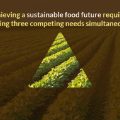 EBRD launches new agribusiness strategy
EBRD launches new agribusiness strategy
 30 civil society organizations have written to the World Bank Group demanding to publicly disclose the Africa Energy Approach paper.
30 civil society organizations have written to the World Bank Group demanding to publicly disclose the Africa Energy Approach paper.
 Over 600 million Africans lack electricity despite huge renewable energy potential
Over 600 million Africans lack electricity despite huge renewable energy potential
DEFENDING LAND AND ENVIRONMENTAL RIGHTS
Breaking: Three community land rights defenders from Kawaala have been arrested.
Published
3 years agoon
July 12, 2022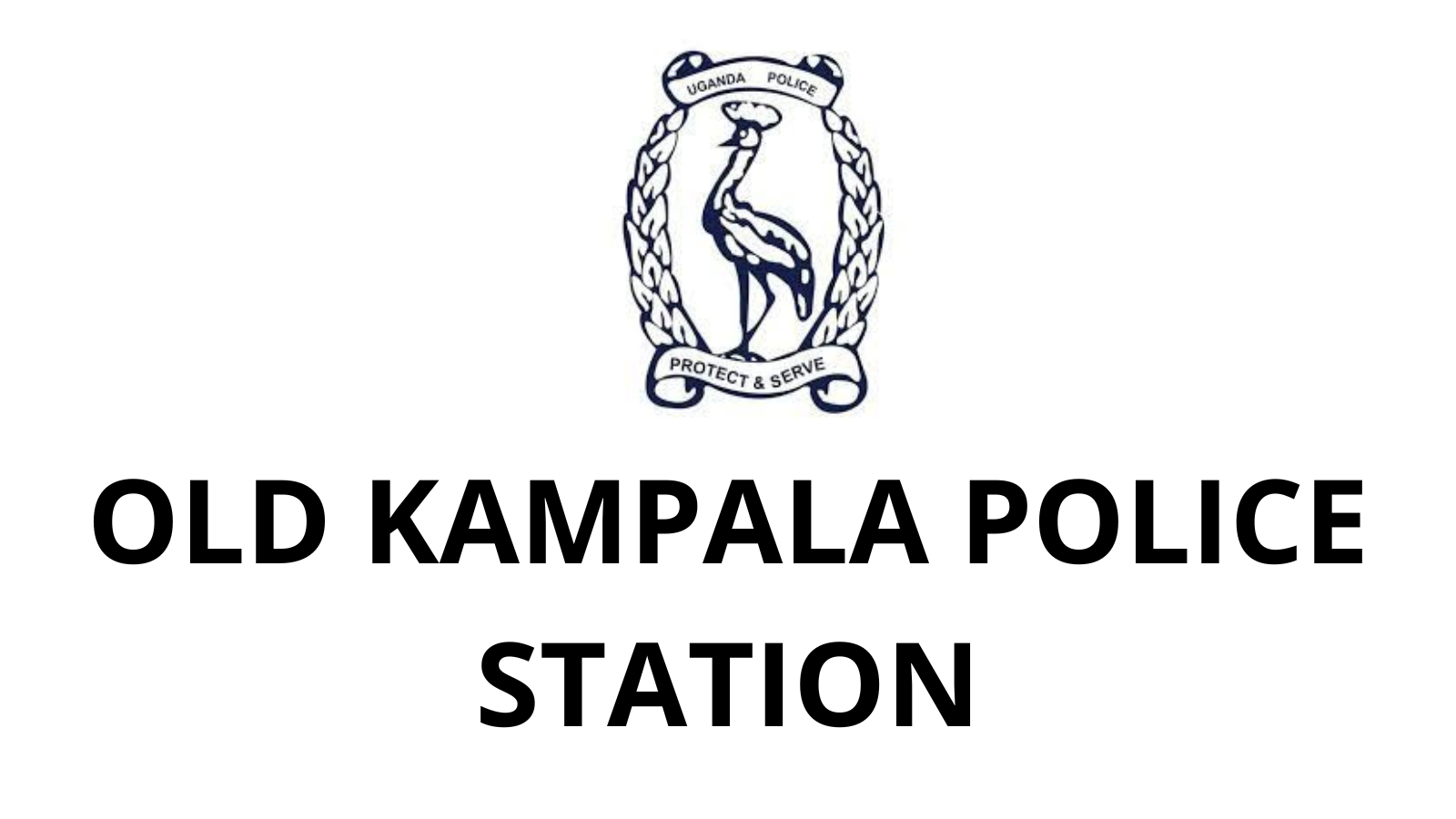
Breaking: Three community land rights defenders from Kawaala have been arrested.
By Witness Radio team
Police at Old Kampala Regional Police Headquarter have arrested three of the six community land rights defenders from Kawaala Zone II, Kampala suburb, and preferred a fraud charge before being released on bond.
Kasozi Paul, Busobolwa Adam, and Kabugo Micheal got arrested on their arrival before being taken inside interrogation rooms. They were questioned from 11:00 AM – 12:30 PM local time and later recorded their statements.
Section 342 of the Penal Code states that forgery is the making of a false document with the intent to defraud or deceive. It carries a three year imprisonment on conviction.
According to lawyers representing victims, defenders are arrested on the orders of the Deputy Resident City Commissioner (RCC) in charge of Rubaga Division Anderson Burora and accused them of fraud.
Resident City Commissioner is a representative of the president in the Capital City at the division level.
The charges are a result of continued resistance by Kawaala community seeking fair compensation and resettlement before Lubigi drainage channel is constructed. Since the first COVID outbreak in 2020, the victim defenders and others have been leading a pushback campaign to stop forced evictions by a multimillion dollars Kampala Institutional and Infrastructure Development Project (KIIDP-2) funded by World Bank. Kampala Capital City Authority (KCCA) is the implementor of the project.
This project first impacted Kawaala Zone II around 2014, when a channel diversion was constructed. The current planned expansion will widen that channel and require forced evictions across an area at least 70 meters wide and 2.5 km long.
The New Vision, a local daily of June 21st, 2022, quoted Burora accusing Kasozi Paul, one of the community land rights defenders from Kawaala Zone II of being a fraudster.
Witness Radio – Uganda challenges the deputy RCC Burora to produce evidence that pins the defenders on fraud instead of criminalizing the work of defenders.
“We warn Mr. Burora against using police to harass defenders who have openly opposed a project which is causing negative impacts on the community” Adong Sarah, one of the lawyers representing the defenders said.
The defenders got released on police bond as they are expected to report back to the police on Monday, the 18th of July 2022 at 11:00 AM local time.
Related posts:
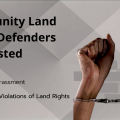
 Kawaala community land rights defenders will report for police bond for the fourth time on 1st August.
Kawaala community land rights defenders will report for police bond for the fourth time on 1st August.
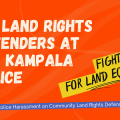 Six community land rights defenders from Kawaala have turned up at police for interrogations but, failed to take off
Six community land rights defenders from Kawaala have turned up at police for interrogations but, failed to take off
 Breaking: Kawaala Community land rights defender has been kidnapped.
Breaking: Kawaala Community land rights defender has been kidnapped.
 Breaking: A Kawaala community land rights defender kidnapped and taken to unknown destinations, others on the run.
Breaking: A Kawaala community land rights defender kidnapped and taken to unknown destinations, others on the run.

Activism on Trial: Despite the increasing repressive measures, Uganda’s EACOP protesters are achieving unexpected victories in the country’s justice systems.

Communities Under Siege: New Report Reveals World Bank Failures in Safeguard Compliance and Human Rights Oversight in Tanzania

A decade of displacement: How Uganda’s Oil refinery victims are dying before realizing justice as EACOP secures financial backing to further significant environmental harm.

Carbon Markets Are Not the Solution: The Failed Relaunch of Emission Trading and the Clean Development Mechanism

A decade of displacement: How Uganda’s Oil refinery victims are dying before realizing justice as EACOP secures financial backing to further significant environmental harm.

Govt launches Central Account for Busuulu to protect tenants from evictions

Activism on Trial: Despite the increasing repressive measures, Uganda’s EACOP protesters are achieving unexpected victories in the country’s justice systems.

Top 10 agribusiness giants: corporate concentration in food & farming in 2025

Innovative Finance from Canada projects positive impact on local communities.
Over 5000 Indigenous Communities evicted in Kiryandongo District
Petition To Land Inquiry Commission Over Human Rights In Kiryandongo District
Invisible victims of Uganda Land Grabs
Resource Center
- LAND GRABS AT GUNPOINT REPORT IN KIRYANDONGO DISTRICT
- RESEARCH BRIEF -TOURISM POTENTIAL OF GREATER MASAKA -MARCH 2025
- The Mouila Declaration of the Informal Alliance against the Expansion of Industrial Monocultures
- FORCED LAND EVICTIONS IN UGANDA TRENDS RIGHTS OF DEFENDERS IMPACT AND CALL FOR ACTION
- 12 KEY DEMANDS FROM CSOS TO WORLD LEADERS AT THE OPENING OF COP16 IN SAUDI ARABIA
- PRESENDIANTIAL DIRECTIVE BANNING ALL LAND EVICTIONS IN UGANDA
- FROM LAND GRABBERS TO CARBON COWBOYS A NEW SCRAMBLE FOR COMMUNITY LANDS TAKES OFF
- African Faith Leaders Demand Reparations From The Gates Foundation.
Legal Framework
READ BY CATEGORY
Newsletter
Trending
-

 SPECIAL REPORTS AND PROJECTS4 days ago
SPECIAL REPORTS AND PROJECTS4 days agoActivism on Trial: Despite the increasing repressive measures, Uganda’s EACOP protesters are achieving unexpected victories in the country’s justice systems.
-

 NGO WORK1 week ago
NGO WORK1 week agoCommunities Under Siege: New Report Reveals World Bank Failures in Safeguard Compliance and Human Rights Oversight in Tanzania